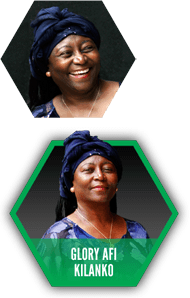As state’s redistricting process unfolds, local communities push back against closed-door process
Today, the City of Clarkston approved a resolution urging the Georgia General Assembly “to conduct the 2021 redistricting process in a fair, transparent, non-discriminatory and politically neutral manner.”
The resolution is another sign of the growing sentiment of distrust in the state’s administration of the decennial redistricting process due to lack of transparency and public inclusion.
Clarkston is just the first local jurisdiction to pass a resolution requiring the General Assembly to commit to basic principles of fairness, transparency, and nonpartisanship. This City of Clarkston has been a trailblazing municipality that recognizes the need for inclusion and uplifting the multiethnic and diverse voices of its citizens.
“Redistricting language is alien to my community. But we know in simple terms that it is the process of drawing the lines of districts from which public officials are elected, it’s the process of transporting voters across district lines, it means good roads, good schools, affordable housing, and hospitals to mention a few. it is also frequently a necessary process to reflect changes in population and racial diversity after each decennial Census. This process should be transparent and inclusive” said Glory Kilanko, Founder & CEO, Women Watch Afrika.
“The redistricting process determines our voting power for the next decade and the voters deserve a seat at the table,” said Aunna Dennis, Executive Director of Common Cause Georgia. “The General Assembly has intentionally locked the community out of this process with major decisions being made behind closed-doors and voters left in the dark. We applaud the City of Clarkston for speaking out for a transparent redistricting process and we urge the General Assembly to heed their call.”
The City of Clarkston’s resolution states that “districts should not be drawn for the purpose of favoring or discriminating against any political party or candidate” and lists a set of ten principles for the General Assembly to follow when drawing new boundaries.
The resolution’s ten principles the General Assembly must follow for a fair redistricting process are as follows:
1. Incorporate clearly described criteria that respect the U.S. Constitution, the Voting Rights Act of 1965, contiguity requirements, communities of interest, political competitiveness, and compactness;
2. Cannot consider the address of any one individual, particularly an elected official or candidate;
3. Conduct a transparent process with meaningful opportunities for public participation;
4. Ensure language access for Georgians whose first language is not English and for Georgians who require interpretation services;
5. Allow the public to draw and submit maps for consideration in the legislature’s official process;
6. Provide ample notice of hearings and other opportunities for the public to participate;
7. Schedule hearings no sooner than two weeks after proposed maps are published publicly and no sooner than five days for amended maps, and with in-person and remote participation options available;
8. Submit written response to communities of interest and explain why the submission was applicable or not;
9. Utilize the decennial Census data as the primary source of data for redistricting, with American Community Service Data and other alternative data used as required by the Voting Rights Act of 1965; and
10. Utilize the decennial Census data as the primary source of data for mid-cycle redistricting, with American Community Service Data and other alternative data used as required by the Voting Rights Act of 1965.
—
 As an expert in this field, Women Watch Afrika provides trainings as a consultant on numerous issues. For more information on training, guidance, consulting services, and/or information on working with immigrant communities contact Glory Kilanko, Founder and Executive Director, Women Watch Afrika, Inc. at 404-759-6419 or womenwatchafrika@gmail.com
As an expert in this field, Women Watch Afrika provides trainings as a consultant on numerous issues. For more information on training, guidance, consulting services, and/or information on working with immigrant communities contact Glory Kilanko, Founder and Executive Director, Women Watch Afrika, Inc. at 404-759-6419 or womenwatchafrika@gmail.com
About Women Watch Afrika:
Women Watch Afrika is a grassroots, nonprofit, international, national, and local social justice organization focused on the elimination of all forms of discrimination against women and girls, the promotion of social and economic development and health equity of women, and the acculturation of immigrants and refugees (men and women) arriving to the United States from 23 African nations.
In line with its goal, Women Watch Afrika provides Social Services, Legal Services, Advocacy, Health Education, Legal Education, End Domestic Violence classes, Stop FGM/C workshops, Reproductive Rights Education, Know Your Rights workshops, Citizenship Preparation, Civic Engagement; and Advocates against unjust, discriminatory laws that affect the community.
Website: https://womenwatchafrika.org/ Tel: 404-759-6419
Twitter: @WomenWatchAfri Facebook: @WomenWatchAfrika
Be a supporter of WWA and help us to continue this wonderful work and advocacy that we are doing! You may make a gift through the link below:
Or make a check payable to:
Women Watch Afrika
P. O. Box 208
Avondale Estates, GA 30002
Follow us on Social Media:
Facebook: https://www.facebook.com/WomenWatchAfrika
Twitter: https://twitter.com/WomenWatchAfri